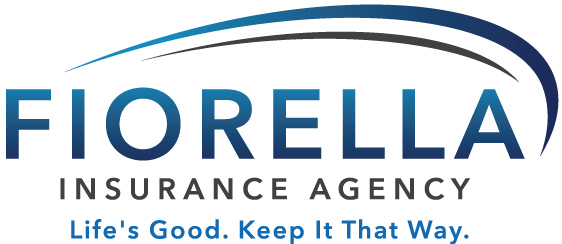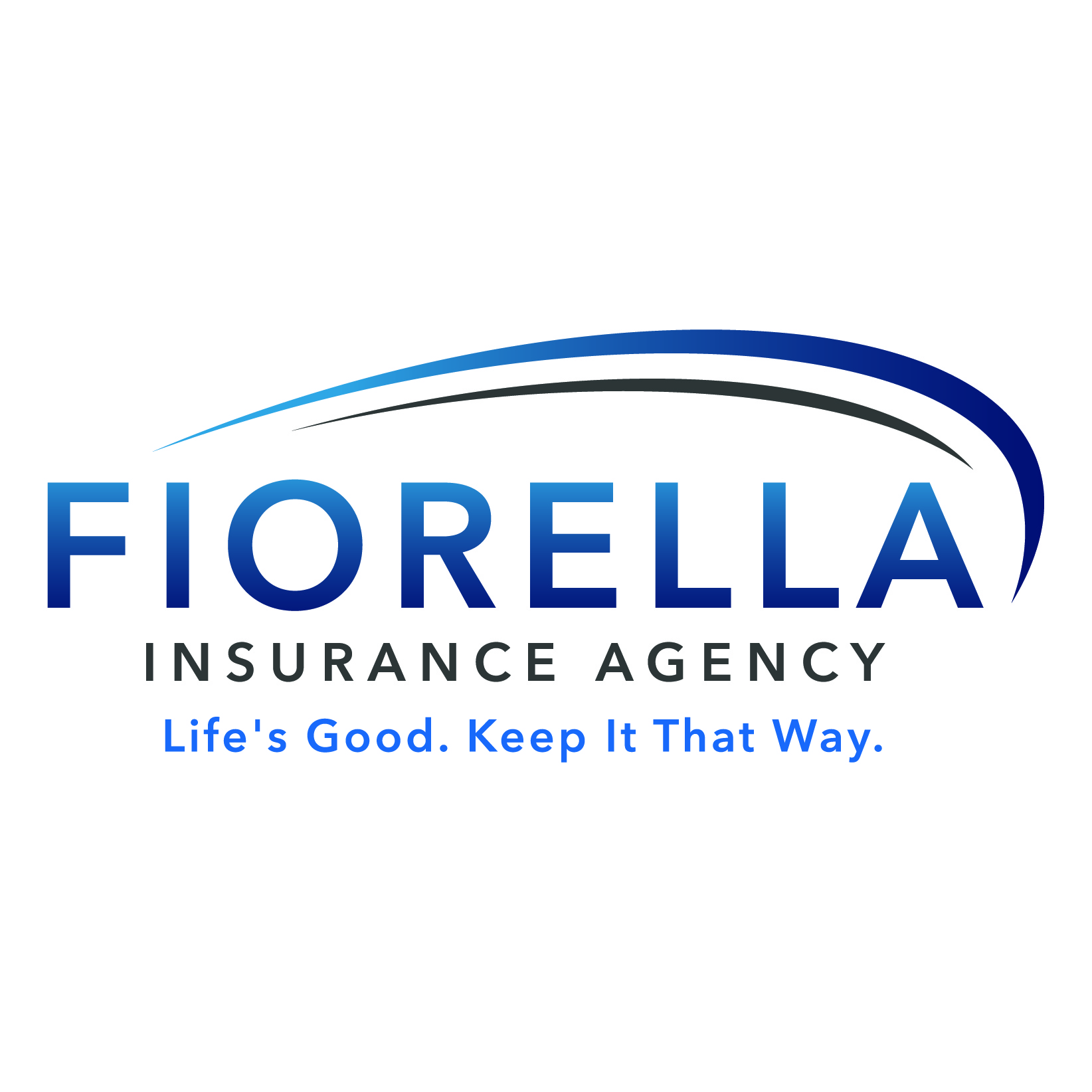Does health insurance cover hearing aids? It’s a question that has puzzled many, especially those who are dealing with hearing loss for the first time.
The answer isn’t as straightforward as one might hope. It varies greatly depending on your specific insurance plan and provider.
This topic is often shrouded in confusion due to the complex nature of healthcare policies and regulations. The truth about whether or not health insurance covers hearing aids, however, can be uncovered with some diligent research.
We’ll dive into this issue by examining various types of health insurance and their approach toward covering costs associated with hearing aids. We’re here to guide you through these intricate matters so that you can take informed action regarding your hearing health requirements.
Contact Fiorella Insurance today for your free health insurance quote.
Table of Contents
- Understanding Hearing Aid Coverage
- Auditory Healthcare Needs vs. Insurance Policies
- The Reality of Hearing Aid Insurance
- Does Health Insurance Cover Hearing Aids?
- Importance Of Regular Hearing Tests And Early Intervention
- Dealing With Insurance Providers For Your Hearing Care Needs
- Making Informed Decisions About Your Ear Health And Insurance
- FAQs in Relation to Does Health Insurance Cover Hearing Aids
- Conclusion
Understanding Hearing Aid Coverage
The intricacies of hearing aid coverage can often be a maze, with many individuals assuming that health insurance plans universally cover these essential medical devices. However, the reality is different – only about one in four Americans receive some form of financial assistance through their insurer for purchasing hearing aids.
-
Save
Different insurance companies and individual policy offerings within the same company play significant roles in determining what aspects of your hearing care are covered under their policies. This results in varying degrees of coverage among providers.
This isn’t always true; quite often, individuals find themselves bearing most if not all, costs associated with obtaining and maintaining crucial auditory devices due to lackluster benefits from insurers or the absence thereof altogether from certain plans’ scope.
Understanding Insurance Complexities for Auditory Care
- Identify discrepancies: Understand why such disparities exist when it comes to providing adequate support for patients who require auditory care.
- Analyze value perception: Delve deeper into how insurers perceive the value of investing resources towards covering expenses tied with aiding those experiencing trouble with their ears.
Auditory Healthcare Needs vs. Insurance Policies
Understanding the relationship between auditory healthcare needs and insurance policies can be a daunting task, especially when it comes to determining whether or not your health insurance will cover hearing aids. It’s essential to know what your insurance plan covers before you purchase hearing aids.Hearing Aid Coverage by Insurance Providers
Coverage varies significantly among different insurance providers and plans. Some companies offer partial hearing aid coverage, while others may fully cover the cost of prescription hearing aids, including fitting fees. However, many do not provide any coverage for over-the-counter (OTC) models. To find out if your policy includes hearing care coverage, contact your insurer directly or consult with a representative from the Hearing Loss Association in America (HLAA). They can help guide you through understanding what benefits are available under various plans.Mandated Coverage: Medicaid & Medicare Advantage Plans
The type of health insurance also plays a crucial role in determining whether you get financial assistance for purchasing these devices. For instance, Medicare Part B (Medical Insurance), commonly known as Original Medicare, does not generally cover hearing aids, but some Medicare Advantage Plans (Part C) might include this benefit. Good news: Under certain conditions like moderate-to-severe trouble hearing that affects daily life activities, Medicaid mandates coverage for adults and children alike! This is an excellent resource for those who qualify based on income levels and other criteria established by their state’s program.Tips To Remember When Purchasing Hearing Aids With Health Insurance
- Contacting Your Provider: Always check with your provider first about their specific terms related to covering costs associated with diagnosing or treating loss of audition, such as providing payment towards diagnostic tests required prior to getting prescribed treatment options.
- Understanding The Process: Keep in mind that obtaining approval from insurers often involves several steps, including pre-authorizations, which could require additional time than expected, so plan accordingly!
- Finding Additional Support: If there isn’t sufficient support provided via one’s personal policy, then consider exploring other resources such as non-profit organizations dedicated to supporting individuals suffering from auditory impairments.
Shockingly, only 1 in 4 Americans get financial help from insurers for these devices. Don’t assume your plan covers it. #HealthInsurance #HearingAidCoverage Click to Tweet
The Reality of Hearing Aid Insurance
Insurance coverage for hearing aids is not as straightforward as one might assume. Many insurance companies offer only partial hearing aid coverage, leaving a significant financial burden on those in need.Financial Assistance Options for Hearing Aids
Finding your way through this topic can be difficult, but there are resources available to help with the expenses of acquiring auditory equipment. Numerous organizations offer support programs specifically designed to assist individuals in affording their essential devices. A valuable tool worth exploring is the guide provided by the Hearing Loss Association. This comprehensive resource outlines state-specific laws regarding adult and pediatric insurance coverages related to hearing care needs. It’s an excellent starting point when trying to understand your rights and potential sources of funding based on where you reside.The Role of Medicare and Medicaid in Hearing Care Coverage
Government-funded programs such as Medicare and Medicaid play a significant role in hearing care coverage. Each program provides varying levels of support for those grappling with the challenges of hearing loss.Understanding Medicare Part B’s Impact on Hearing Aid Insurance
Medicare Part B, also known as Medical Insurance, covers specific doctors’ services, outpatient care, medical supplies, and preventive services. However, this gap can pose financial hardships for many seniors who require these vital tools but struggle to meet their high out-of-pocket costs. It is worth noting that while original Medicare may not offer this benefit, certain Medicare Advantage plans (Part C) do provide partial or even full coverage benefits for managing auditory health issues effectively.An Overview Of Medicaid’s Contribution To Hearing Aid Coverage
In contrast with the limited assistance provided by Original Medicare, Medicaid – a state-run initiative designed primarily for low-income individuals – offers more comprehensive aid. This includes coverages like over-the-counter hearing aids, fitting fees, etc., which vary from one state policy to another. Some states might even extend their policies further, including assistive listening devices under Medicaid’s purview – an essential tool if suffering from moderate to severe degrees of deafness.Exploring hearing aid coverage can be complex. While Medicare Part B may not cover it, some Advantage plans do. Medicaid offers more comprehensive help, varying by state. Know your options. #HealthInsurance #HearingAidCoverage Click to Tweet
Does Health Insurance Cover Hearing Aids?
Understanding how private health insurance covers hearing aids can be complex. Different insurers offer different levels of benefits, which may include partial or full coverage for purchasing and maintaining hearing aids.Anthem’s Strategy Towards Covering Hearing Aids
In the realm of private health insurers, Anthem stands out with its approach to covering costs associated with buying new sets of hearing aids every few years. They aim to ensure policyholders have access to current technology that enables effective management of their auditory needs. Note, though, this contribution might not cover all expenses related to acquiring a device. In some instances, Anthem includes additional services like fitting fees and follow-up visits as part of their comprehensive plans, providing holistic care for those dealing with hearing loss. Different states enforce various rules regarding responsibilities that insurance companies must uphold when it comes to covering costs related to prescription or over-the-counter hearing aids under private health insurance plans. Therefore, understanding your specific plan before making any decisions about treatment options becomes crucially important.A Look At Other Private Insurers And Their Coverage Policies
Beyond Anthem, other significant industry players such as Humana and Aetna also provide hearing aid benefits. The specifics vary from insurer to insurer but generally involve some form of financial assistance towards buying devices or paying service charges, including fitting fees, etc. When exploring these options, considering potential out-of-pocket expenses is essential, along with factors like quality customer service, network size, ease of the claim process, etc. Remember, informed decision-making holds the key to choosing an appropriate provider suitable for your unique needs.Searching for health insurance that offers hearing aid coverage? Different insurers offer varying benefits, some even cover the costs of new sets every few years. Know your plan before deciding on treatment options. #HealthInsurance #HearingAidCoverage Click to Tweet
Importance Of Regular Hearing Tests And Early Intervention
The significance of hearing in our daily interactions cannot be overstated. It’s the linchpin that holds together communication, and as such, regular testing is paramount.Preventing Progressive Hearing Loss with Regular Testing
Hearing loss can often creep up on us unnoticed until it becomes severe. However, if detected early through routine examinations by healthcare professionals or audiologists, mild symptoms can be managed effectively to prevent further damage. This proactive approach ensures minor problems don’t escalate into more serious conditions like moderate or even severe hearing loss over time. Experts recommend annual exams for adults above 50 due to increased risk factors associated with age-related auditory decline. Younger individuals experiencing tinnitus (ringing ears) or trouble understanding speech should also seek professional evaluation promptly.Taking Prompt Action at The First Sign of Trouble
Beyond regular tests, there’s an equally important role played by timely intervention when dealing with potential ear health issues. Whether adjusting lifestyle habits contributing towards damaging your ears (like exposure to loud noises), starting medication for infections causing temporary deafness, or getting fitted prescription hearing aids – taking action at the first sign of trouble matters greatly.- In cases where significant damage has already been done from diseases affecting inner ear structures like Meniere’s disease or otosclerosis surgical interventions might become necessary.
- No matter how minimal signs indicating possible troubles may seem, never ignore them. They serve as warning signals urging immediate attention.
- Above all, remember: Don’t wait till things get worse; act now.
Key Takeaway:
Don’t turn a deaf ear to hearing health. Regular tests and early intervention are crucial in preventing progressive hearing loss. Whether it’s lifestyle adjustments, medication, or getting fitted for aids, taking action at the first sign of trouble can save your ears.
Dealing With Insurance Providers For Your Hearing Care Needs
Understanding the specifics of your insurance policy is crucial when it comes to hearing care. This includes knowing whether your plan covers tests related to ear health or the fitting of new prescription or over-the-counter hearing aids. The first step towards this understanding involves a thorough review of your insurance documents, focusing on sections detailing benefits and exclusions that specifically relate to hearing aid coverage. If you find any information unclear, reaching out directly to your insurer can provide clarity.Having Conversations with Your Insurer
Prior preparation before contacting an insurer can be beneficial. Formulate questions like:- “Does my plan offer full or partial coverage for prescription/over-the-counter hearing aids?”
- “What is the process and timeline for reimbursement?”
- “Are there preferred providers I need to use?”
Maintaining Documentation: A Key Aspect Of Dealing With Insurers
In dealings involving insurers, keeping meticulous records proves invaluable. Such documentation should include copies of prescriptions from doctors as well as receipts relating to purchases made for batteries, repairs, etc., pertaining to auditory requirements. If feasible, request that healthcare professionals involved in treatment (like audiologists) write down their recommendations too; such documentation might prove helpful when filing claims or disputing denials later. Remember: Understanding how different aspects like mandate coverage work will enable better decision-making regarding purchasing suitable devices without unnecessary financial strain.Understanding your insurance policy for hearing care needs is crucial. By knowing the details, asking precise questions, and keeping thorough records, you can make informed decisions without worrying about financial strain. Don’t forget to check if your insurance covers hearing aid expenses! #HearingAidCoverage Click To Tweet
Assessing Coverage Based on Personal Needs
Your personal needs should dictate your choice of an insurance policy that provides adequate hearing care coverage. If you’re already dealing with moderate-to-severe ear-related health issues, then a comprehensive policy covering prescription aids along with regular tests would be more beneficial than one offering basic benefits only. If preventive measures such as routine check-ups are all you need at present, consider opting for a basic yet reliable policy. However, remember that even if there aren’t any noticeable symptoms now, preparing ahead can save unnecessary hassles in the future.Sourcing Expert Guidance
Audiologists often have firsthand experience interacting with different insurance companies regarding their policies towards hearing care provisions. Their professional insights based on patient feedback can prove invaluable during the decision-making process. You could also refer to resources like the Hearing Loss Association, which offers extensive information about varied plans across states. The key here lies in thorough research coupled with expert consultation so that when the time comes to make decisions, you’re fully informed about all aspects concerning your ear health requirements within the context of available insurance.
Key Takeaway:
Choosing the right health insurance for hearing aid coverage is a balancing act, requiring careful consideration of your personal needs and each plan’s offerings. From understanding what’s covered to seeking expert advice, it pays to do your homework before making decisions about ear health requirements.
Making Informed Decisions About Your Ear Health And Insurance
The journey towards maintaining optimal ear health involves making informed decisions about regular check-ups, early intervention at the first sign of trouble hearing and understanding your insurance policy thoroughly. It’s essential to remember that while this process may seem daunting initially, there are numerous resources available, including professional help from audiologists. It’s important to not only understand what is covered by your insurance policy but also how much of the associated costs (e.g., fitting fees and repair costs) you will need to pay out-of-pocket.Finding The Right Insurance Plan For Optimal Benefits
An effective way forward in navigating through various insurance plans is by comparing the level of coverage provided for testing, treatment options, fitting fees, repair costs, etc. You should consider factors such as deductibles, co-pays, and maximum out-of-pocket expenses when choosing a plan suitable for your needs.- Compare different insurers’ policies on partial or full coverage.
- Evaluate the financial assistance offered under each plan.
- Determine which insurer provides better benefits based on lifestyle & degree of hearing loss.
Resources Are Available To Help You Make The Right Decision
If navigating through this process seems overwhelming at first, don’t worry because resources are available, including professional help from audiologists. They can guide you on which type of device would suit you best according to your lifestyle and the severity of hearing loss. Moreover, organizations like Hearing Loss Association provide comprehensive information about various plans, assisting individuals in making an informed decision regarding the selection of appropriate insurance covering most aspects associated with ear health care needs.Compare coverage, out-of-pocket costs, and benefits tailored to your lifestyle & degree of hearing loss. Help is available from audiologists and organizations like the Hearing Loss Association. #HealthInsurance #HearingAids Click to Tweet
FAQs in Relation to Does Health Insurance Cover Hearing Aids
Why are hearing aids not covered by insurance?
Hearing aids often aren’t covered because they’re classified as “elective” rather than necessary medical devices. Some insurers may offer partial coverage or discounts.Are hearing aids considered medical equipment?
Yes, the FDA categorizes hearing aids as Class I or II medical devices, but their coverage under health insurance varies widely.Do hearing aids count towards insurance deductible?
If your plan covers part of the cost of a hearing aid, that amount can typically go toward your annual deductible.How can hearing aids be covered?
Coverage depends on individual plans and providers. Options include Medicare Advantage Plans, Medicaid in certain states, VA benefits for veterans, and some private insurance. Alternative financing options exist too.Conclusion
Does health insurance cover hearing aids? Health insurance and hearing aids – a complex relationship indeed. We’ve explored the current state of hearing aid coverage, understanding that only one in four Americans have access to some degree of financial assistance through their insurer. The role of insurance companies is crucial, with average contributions amounting to $1,257 per hearing aid for those fortunate enough to receive help. Medicare and Medicaid play varying roles. While original Medicare doesn’t cover hearing aids, certain Advantage plans do. Medicaid’s comprehensive coverage varies by state. Veterans aren’t left out either; they can benefit from special provisions provided by the VA for moderate to severe hearing loss cases. Private health insurers are also part of this landscape but often provide limited benefits for purchasing these essential devices. If your health insurance falls short or does not cover them fully, alternative financing options exist. Organizations offer financial support towards buying a device that helps combat trouble with your ability to hear. In conclusion: yes, some forms of health insurance do cover hearing aids – but it’s far from universal. It pays off to be well informed about all available options and keep ear health a top priority!Contact Fiorella Insurance today for your free health insurance quote.



